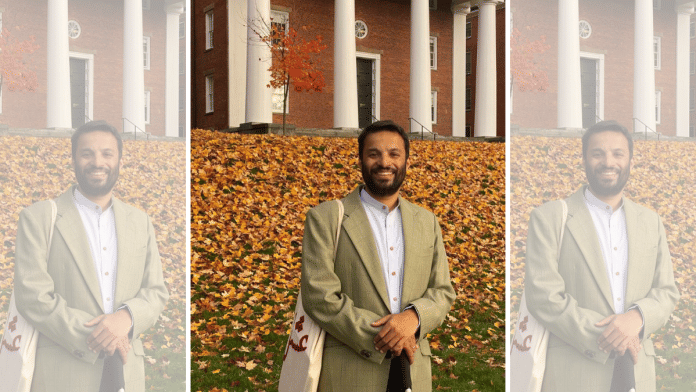The Indian government has formed seven all-party delegations to travel across the world—a group of 51 political leaders and eight former ambassadors, headed to 25 countries—with the aim of countering global narratives on cross-border terrorism, especially in the context of Pakistan. This is India’s move to present its side on the world stage. Some have even called it a narrative war.
But even as this effort unfolds, another story is making national and international headlines. Ali Khan Mahmudabad, a professor, has been arrested for writing a Facebook post. And no matter how many delegations are formed, it’s an incident like this that quietly shapes how India is seen from the outside.
Reading the Facebook post, I honestly couldn’t quite figure out what led to FIRs. Yes, there were things I disagreed with—and things I agreed with too—but disagreement isn’t a crime. What sentiment did it really hurt? What national interest did it damage? Whose sensibilities did it offend in a way that justified legal action? It’s hard to say.
Ironically, one of the two FIRs was filed by the chairwoman of the Haryana Women’s Commission, who claimed the professor’s comments undermined women officers. But she couldn’t clearly explain what, exactly, was offensive about the post when asked about it on national television. The language wasn’t abusive. There was no hate speech. And all of this, just days after Vijay Shah—a sitting minister—called Colonel Sofiya Qureshi a “terrorist’s sister.” In that case, there was no FIR, no action, nothing. I’m not saying he should be arrested. I don’t believe in FIRs for every offensive remark. But still, he holds public office, and his comment was clearly targeted and irresponsible. Meanwhile, a professor posts something you may or may not agree with, and he ends up in jail. That contrast is hard to ignore. And harder to explain.
What stood out in all this was that many influential Right-wing voices—people who clearly disagreed with the professor—still spoke up in defence of his right to express himself. And that matters. Because disagreement and criticism are normal, even necessary. But demanding silence is something else entirely. The fact that voices more likely to oppose him chose to speak about freedom instead of taking offence shows that we still understand the line that shouldn’t be crossed. It doesn’t fix the problem, but it does remind us that not everyone has abandoned the basics.
Also read: Vijay Shah’s comment on Col Qureshi is a mindset that has gone unchecked for years
Too fragile to disagree?
There’s been some discussion around this case about freedom of speech and hurting religious sentiments. This conversation needs to happen. But the thing is, this post didn’t break any laws.
The Supreme Court has now granted him bail, but with conditions. He’s had to surrender his passport and is barred from speaking or writing anything more about his post or Operation Sindoor. During the hearing, the court described his post as ‘dog whistling’. Justice Surya Kant said, “Yes, everyone has the right to free speech… but is it the time to talk about all this?” He questioned why someone would speak out “to get cheap popularity” during such a time.
And it makes me wonder, are we saying that, as a nation, we can’t handle different ideas? That we’re too fragile to disagree? If free speech comes with warnings about timing and tone, then is it really free? Or is it just something granted in moments of calm and taken away when it feels inconvenient?
That’s where the discomfort begins. Saying that freedom of speech isn’t about what you say, but when you say it, and how it’s perceived, is a slippery slope. Suddenly, it’s not about the law anymore. It becomes about mood. About timing. About what’s convenient. And that’s a thin line for any democracy, especially when the cost of stepping over is a jail cell.
It’s in our legacy—as Hindustan—to have space to speak the truth, to speak one’s mind. This land has always held space for different ideas, even uncomfortable ones. I’ve read and heard things I strongly disagree with—but still, I’ve always believed that we, as a society, are capable of disagreeing without falling apart. That we can talk, debate, and question, without needing to criminalise every difference.
That’s the country I know. Where ideas clash, but people still share space. Where truth isn’t something to be timed well, and thought isn’t something to be feared. If we lose that, we don’t just lose free speech, we lose something deeper—something that’s held this place together far longer than any law or court ruling has.
Amana Begam Ansari is a columnist, writer, TV news panelist. She runs a weekly YouTube show called ‘India This Week by Amana and Khalid’. She tweets @Amana_Ansari. Views are personal.
(Edited by Theres Sudeep)







My heart tells me that is EXACTLY the reason he was given bail. So many deserving people are still waiting for years.
Judicial reforms are necessary so that cases like this are disposed of by declaring the accused innocent in one minute within one day of filing FIR.